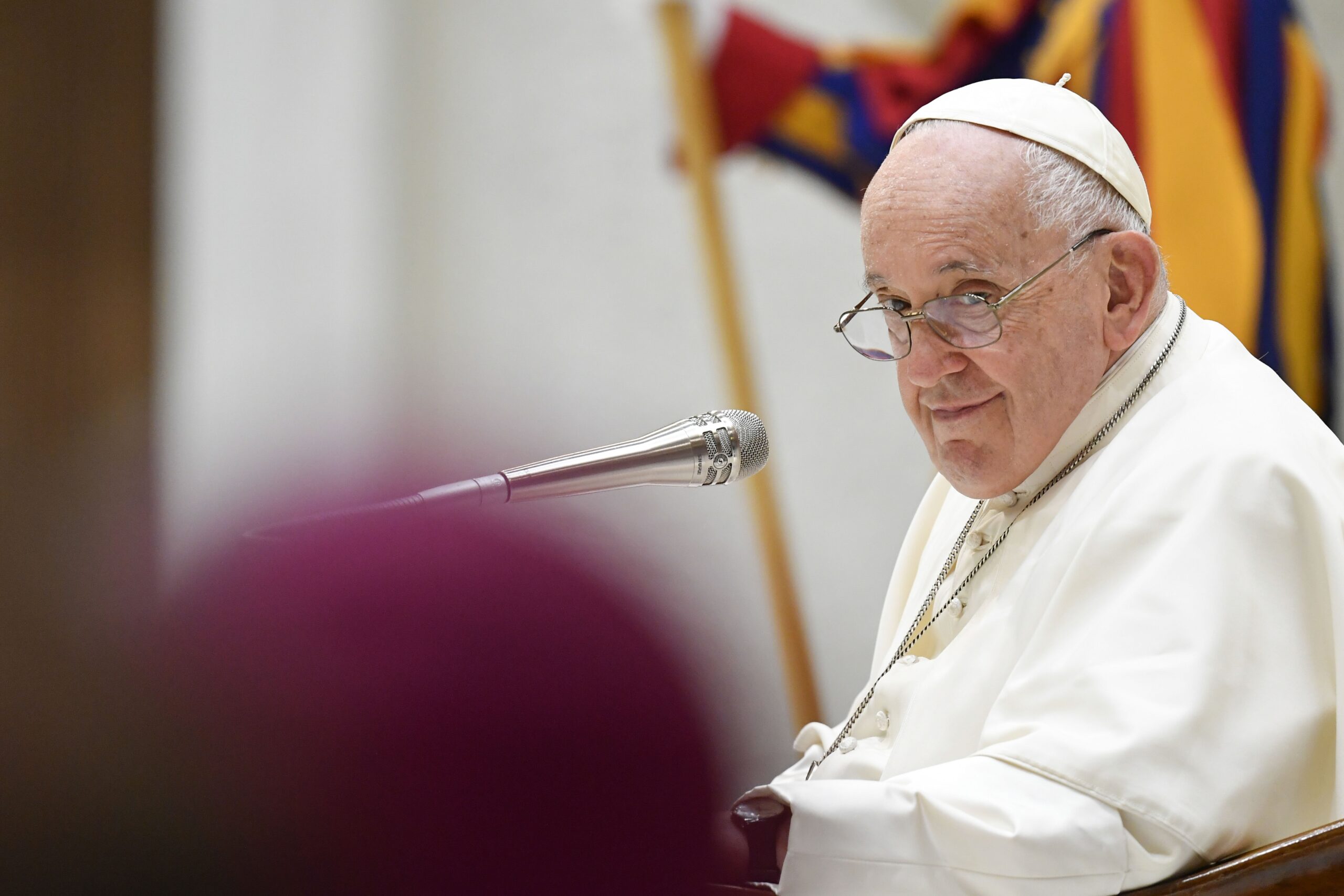‘Feeling omnipotent’ is at root of clerical abuse, pope says
VATICAN CITY — All forms of clerical abuse begin with a priest thinking he is better than others and somehow over them, Pope Francis said.
“We can live our priestly ministry well only immersed in the priestly people from whom we come,” the pope told about 1,000 priests and bishops from some 60 countries Feb. 8 during a conference on the continuing education and formation of priests.
“This belonging to the people — do not ever let us feel separate from the journey of the holy, faithful people of God — protects us, sustains us in our struggles, accompanies us in our pastoral concerns and saves us from the risk of becoming detached from reality and feeling omnipotent,” the pope said. “Watch out because this is also the root of every form of abuse.”
The conference Feb. 6-10 was sponsored by the dicasteries for Clergy, for Evangelization and for the Eastern Churches, which each have some responsibility for the training and ongoing support of priests.
Meeting participants in the Vatican audience hall, Pope Francis said the keys to a happy and healthy priesthood are holding fast to the joy of the Gospel, belonging to a people and experiencing “the generativity of service.”
“I want to express my gratitude for what you do in your dioceses and in your countries (and) for the service you carry out,” the pope said, expressing his hope that the conference would give them ideas for how to “revive the gift, rediscover the anointing, rekindle the fire so that the zeal of apostolic ministry is not extinguished” in their lives or the lives of their brother priests.
Echoing a call from the October assembly of the synod on synodality, which requested that “seminaries and other programs of priestly formation remain connected to the daily life of the community,” Pope Francis said the education of priests “should not be conceived as somehow ‘set apart.’ Rather, it should draw upon the contribution of the people of God: priests and lay faithful, men and women, celibates and married couples, the elderly and the young, without neglecting the poor and suffering who have so much to teach us.”
“Especially today, priests are called to exercise a spirit of synodality,” walking with their people, the pope said.
“Remember your roots, your history, the history of your family, and the history of your people,” he said. “A priest is not born by spontaneous generation; either he is of God’s people, or he is an aristocrat who ends up neurotic.”
A priest is called to serve, Pope Francis insisted.
“Seen in this light, formation in service is not simply the transmission of a body of teachings, but also the art of concentrating on others, bringing out all their beauty and all the good that they carry within, shedding light on their gifts but also on their shadows, their wounds and their desires,” he said.
But, the pope said, seminarians and priests also need that same kind of service, “encouraging their journey, assisting them in discernment, accompanying them in their difficulties and supporting them amid pastoral challenges.”
And, as he often does when meeting priests, Pope Francis asked them to always be merciful.
“Always forgive,” he said. “When people come to confession, they come to ask for forgiveness and not to hear a lecture on theology. Please be merciful. Always forgive, because forgiveness has this grace of embracing, of welcoming. I urge you: always forgive.”
This article was written by Cindy Wooden, CatholicNews Service.



